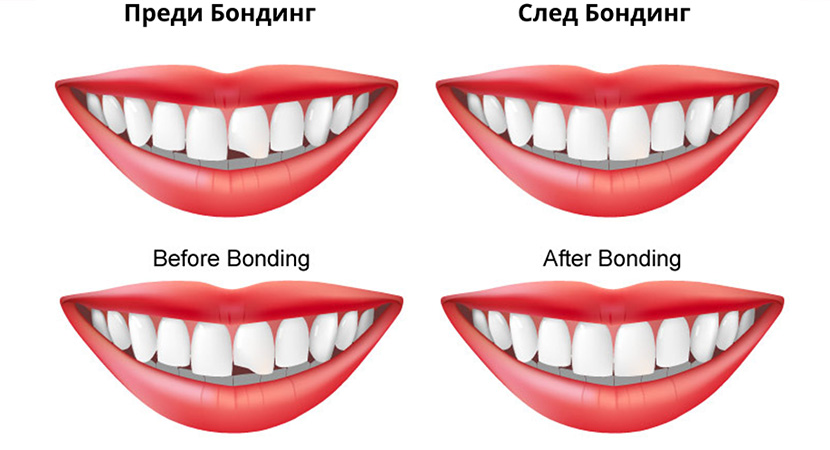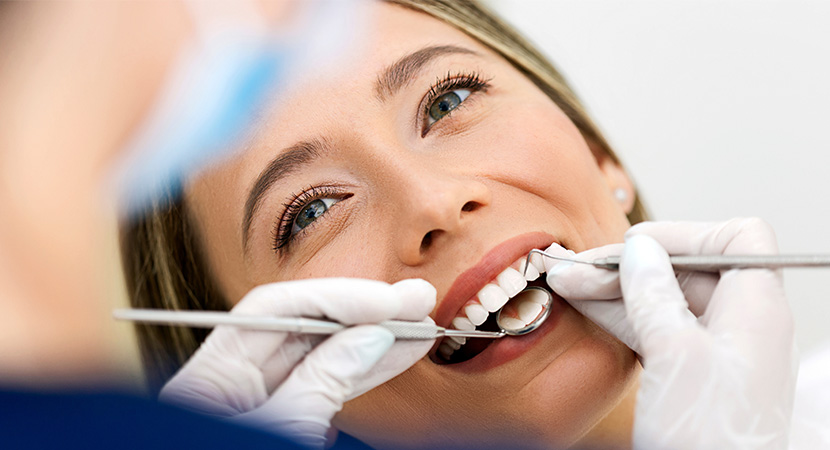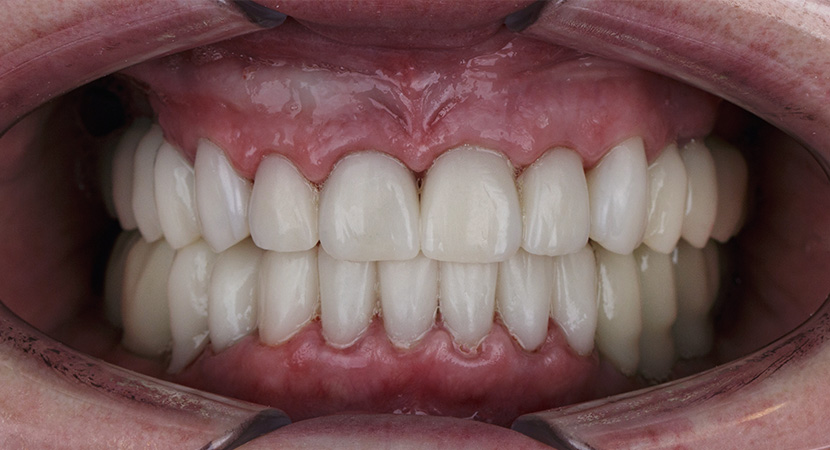
What is Dental Bonding?
Dental Bonding can repair chipped or slightly broken teeth by cementing them with a resin-like dental material. This is mainly cosmetic, and if you want to fix more compromised teeth, it may be better to invest in crowns, dentures, bridges, root canal procedures, or tooth implants.
The material used to bond your teeth looks like natural tooth enamel. They are also chosen to match the shine or the original color of your remaining teeth and smile. This procedure can completely transform your smile.
Similar to filling material, the resin is exposed to ultraviolet rays to harden and bond. It helps to cover or fill dental imperfections like chipped teeth or large fractures, much larger than dental caries.
Why use Dental Bonding?
Dental bonding is best used as an effective, non-invasive cosmetic dental treatment for minor damages and imperfections on your teeth.
If you want a more serious cosmetic treatment on your front teeth, you may instead opt for veneers. These cover your front teeth with a thin, wafer-like material. In contrast, dental bonding cements your teeth with a composite resin in the color of your teeth.
This resin is then polished and shaped to match the surrounding teeth, making it blend in with the rest of the enamel. This gives you a more natural smile compared to veneers, which help whiten discolored teeth.
Dental bonding uses resin that literally sticks and bonds with the other teeth.

How long does Dental Bonding last?
The composite resin applied to your teeth through the bonding process is likely to last from 4 to 8 years, if done by our professionals. If you take good care of your teeth, it could potentially last up to 10 years. After 10 years, you'll need to replace the bonding or undergo a stronger repair process, such as crowns.
Regarding the lifespan of the procedure, its durability is influenced by various factors, including the type of bonding material.
Bonding Material: The quality of the dental bonding material can also affect how durable it is and how much normal mouth activity it can withstand and how long it lasts. Many dentists and clinics skimp on materials to offer more cost-effective deals to clients, which, however, leads to quicker compromise of the bonding.
Dental Habits: Your dental habits can affect the durability of the composite. If you grind your teeth, it can break down the bonding material.
Biting on Hard Foods: Excessive pressure can crack the bonding cement if you bite on hard foods or chew gum endlessly.
Correction: Your dentist can correct the resin and restore the worn composite over time if necessary. Otherwise, an upgrade to a crown may be necessary.
Avoid Sugary or Acidic Foods: If you consume sodas, alcohol, or other acidic drinks and foods, they can wear away not only the natural tooth enamel but also the composite.
Dental Care: Adequate care such as dental hygiene is necessary to ensure the longevity of your dental composite material. You may need to replace the bonding material to get whiter replacements.
Smoking and Drinking: The duration of your dental bonding can be reduced by smoking. Drinking beverages like red wine, tea, and coffee can stain the dental bonding material, discoloring it.
Placement: Dental bonding lasts longer on your front teeth, such as incisors and canines, compared to back teeth like premolars and molars since the latter exert more force or pressure when biting.
Watch What You Eat: Don't bite on things like ice or hard candies. Biting or grinding your teeth on hard substances can chip the bonding material along with your enamel.
Also, use floss and brush after every meal: After eating fruits, no matter how healthy, don't forget to floss and rinse your teeth to prevent plaque or bacteria growth and compromise your dental health.
How to Maintain the Bonding Material: Make regularly scheduled dental visits, get preventive teeth cleaning, and maintain excellent oral hygiene by brushing and flossing twice a day, then use mouthwash during the day.
How long does the Dental Bonding procedure take?
It takes half an hour to an hour to complete the dental bonding procedure. Veneers are customized to match your natural teeth underneath, so they're made in a dental lab. As such, veneers require more time to fabricate.

What's included in Dental Bonding?
The dental bonding procedure is an outpatient procedure. You won't need to stay in the clinic, and if you're fixing just a few teeth, it should only take one visit instead of several.
The first step involves selecting a shade of composite resin that closely matches the color of your other teeth. A shade guide is used for this purpose. Then the surface of your teeth is prepared before the resin is applied to the crack and hardened with UV light.
This procedure usually doesn't require anesthesia unless there's a need to significantly alter the shape of the tooth in question (i.e., requiring extensive drilling). You may also need anesthesia if you need a filling.
What is dental bonding mainly used for? Dental bonding is primarily reserved for repairing chipped and cracked teeth that are not too deeply damaged. If the damage is too severe, veneers and crowns may be required instead.
Long-lasting cosmetic method: If you can afford it, this is a relatively long-lasting cosmetic method for repairing your broken teeth that is effective and reliable.
Its price depends on various factors.
Scope of work: The more surface area requires bonding, the more expensive it should be. The location of the tooth or teeth, as well as the difficulty of application, can also affect the price.
Cosmetic or structural: A more cosmetic procedure is cheaper than structural reconstruction. Additionally, if the damage to your teeth is too deep for this treatment, you will be advised to get a bridge, crown, or denture instead.
Regular touch-ups: Take care of your teeth after bonding. The price may increase if you need to touch it up soon afterward.
Your local area: Your costs may depend on the city where your dentist practices. In certain cities, dental practices may offer you a more affordable or more expensive price.
Abroad: You can also get cheaper dental care abroad, which is cheaper than local dental treatment, even when considering travel expenses.
Dental Tourism in Turkey: You can also take advantage of dental tourism to fix your teeth in Turkey. You can also get a warranty for the procedure in case it gets damaged within a five-year period.
What are the advantages of Dental Bonding?
Teeth are naturally strong and can help you chew, bite, and smile for most of your life.
They are durable because the outer enamel coating of the teeth is one of the strongest materials in your body, an extended part of your bones used for chewing.
You can improve your oral health by undergoing dental bonding.
Uses of dental bonding: This cosmetic dental procedure fixes chipped, cracked, or broken teeth, as well as whitens discolored teeth, as veneers might. It also fills in gaps between teeth when your teeth are crowded. You can even use it to lengthen short teeth.
Painless and extremely convenient: Depending on the treatment, the severity of tooth damage, and the dentist's experience, dental bonding should be relatively painless and comfortable. However, it is mainly painless.
Nature of the bonding material: The bonding material for dental bonding is safe and biocompatible. This means it should be completely compatible with natural teeth, without "poisoning" the tooth or causing gum infection.
How safe is dental bonding?
Dental bonding is almost as safe as placing composite filling material on teeth. It should not harm your body. It should protect your broken tooth from bacterial infection.
Cosmetic or aesthetic value: Newly bonded and polished teeth should enhance the overall appearance of your smile. If you want to brighten your smile by correcting minor imperfections or chipped enamel, opt for dental bonding.
Composite resin: Make your teeth look as good as new by using composite resin, which is colored like natural teeth. It covers the parts where your tooth is chipped or missing enamel. Additionally, it protects the dentin and pulp inside.
Blends well with other teeth: Unlike crowns that cover heavily damaged teeth or fillings, the color of composite resin will match the tooth color. This makes the repair look seamless and natural.
UV-cured cement: To bond your broken teeth, the dentist adds composite resin onto the prepared tooth surface, then shapes it to repair the damage. Then everything is hardened like cement using UV light.
Accessible method for fixing teeth: You can correct both your front and back teeth with this cost-effective option. If the damage is more severe, you can take advantage of more effective tooth restoration methods like getting veneers or crowns.
Improve your oral health: A cracked tooth with exposed dentin is more likely to suffer from nerve pain and infection. Before allowing the damage to worsen significantly, significantly improve the health of your oral cavity with dental bonding.
Additional care may be needed: If your teeth are cracked due to bruxism, cavities, or acidic foods in your mouth, you need to address the cause of the crack rather than fix it with dental bonding.
Protects natural teeth: Your natural teeth should remain intact, and almost no part of them should be removed, except for some enamel that needs to be roughened to allow the bonding agent to adhere better to the surface. The entire tooth is also polished for a good appearance.
Who benefits most from Dental Bonding?
People who have only suffered minor tooth injuries that are not severely damaged can benefit from dental bonding instead of more expensive restoration techniques like veneers, crowns, bridges, or dentures.
A severely damaged tooth is not suitable for dental bonding or filling because there is not enough natural tooth left to serve as a base for the dental "cement." You need a new supporting system to anchor the restoration there.
Dental implants are a better option for those who have lost a tooth or most of a tooth. The implant is a metal post placed in the tooth socket where your teeth used to be, to serve as an anchor for a full porcelain crown, bridge, or denture.
Conclusion
Our dentists offer tooth bonding services in addition to many others at a fraction of the cost of your local dentist. Even taking travel expenses into account, it is still much cheaper to go to Turkey.
In turn, dental bonding is a cosmetic procedure that also improves dental function by bonding or adhering broken enamel or tooth pieces with cement-like composite material.
What are you waiting for? Get tooth bonding in Turkey! Our services come with long-term warranties!
Contact us today and get a FREE dental consultation.


